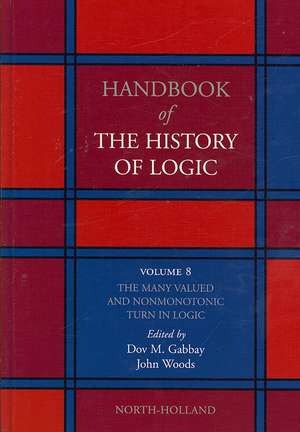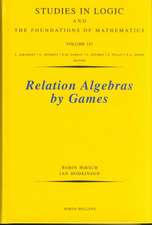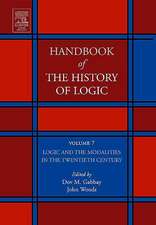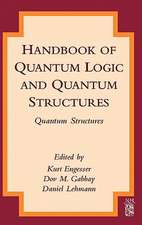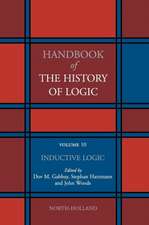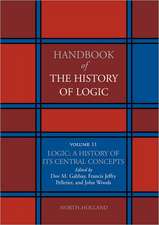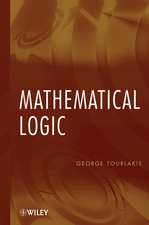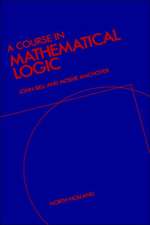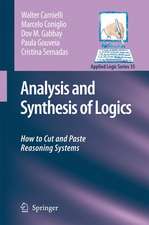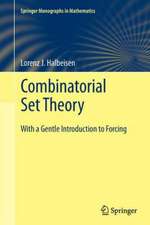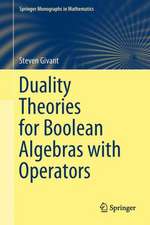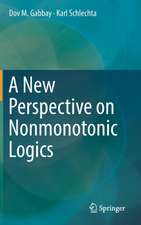The Many Valued and Nonmonotonic Turn in Logic: Handbook of the History of Logic, cartea 8
Editat de Dov M. Gabbay, John Woodsen Limba Engleză Hardback – 5 iul 2007
- Detailed and comprehensive chapters covering the entire range of modal logic.
- Contains the latest scholarly discoveries and interprative insights that answers many questions in the field of logic.
Preț: 1394.45 lei
Preț vechi: 1910.21 lei
-27% Nou
Puncte Express: 2092
Preț estimativ în valută:
266.82€ • 279.34$ • 220.78£
266.82€ • 279.34$ • 220.78£
Carte tipărită la comandă
Livrare economică 05-19 aprilie
Preluare comenzi: 021 569.72.76
Specificații
ISBN-13: 9780444516237
ISBN-10: 0444516239
Pagini: 690
Dimensiuni: 165 x 240 x 34 mm
Greutate: 1.42 kg
Editura: ELSEVIER SCIENCE
Seria Handbook of the History of Logic
ISBN-10: 0444516239
Pagini: 690
Dimensiuni: 165 x 240 x 34 mm
Greutate: 1.42 kg
Editura: ELSEVIER SCIENCE
Seria Handbook of the History of Logic
Public țintă
Researchers and historians in all areas of logic, including theorists, theorists of legal reasoning and cognitive psychologistsCuprins
Preface
List of Contributors
Chapter 1. Many-valued Logic (Grzegorz Malinowski)
Chapter 2. Paraconsistent Logic: Preservationist Variations (Bryson Brown)
Chapter 3. Paraconsistent Logic: Dialethic Variations (Graham Priest)
Chapter 4. Quantum Logic (M. Dalla Chiara, Roberto Giuntini and Miklos Rédei)
Chapter 5. Logic of Vagueness (Dominic Hyde)
Chapter 6. Fuzzy Logic (Didier Dubois, Henri Prade and Lluis Godo)
Chapter 7. Non-monotonic Logic (Karl Schlechta)
Chapter 8. Default Logic (Grigoris Antoniou and Kewen Wang)
Chapter 9. Non-monotonic Reasoning and Belief Change (Alexander Bochman)
Chapter 10. Free Logic (Carl Posy)
Index
List of Contributors
Chapter 1. Many-valued Logic (Grzegorz Malinowski)
Chapter 2. Paraconsistent Logic: Preservationist Variations (Bryson Brown)
Chapter 3. Paraconsistent Logic: Dialethic Variations (Graham Priest)
Chapter 4. Quantum Logic (M. Dalla Chiara, Roberto Giuntini and Miklos Rédei)
Chapter 5. Logic of Vagueness (Dominic Hyde)
Chapter 6. Fuzzy Logic (Didier Dubois, Henri Prade and Lluis Godo)
Chapter 7. Non-monotonic Logic (Karl Schlechta)
Chapter 8. Default Logic (Grigoris Antoniou and Kewen Wang)
Chapter 9. Non-monotonic Reasoning and Belief Change (Alexander Bochman)
Chapter 10. Free Logic (Carl Posy)
Index
